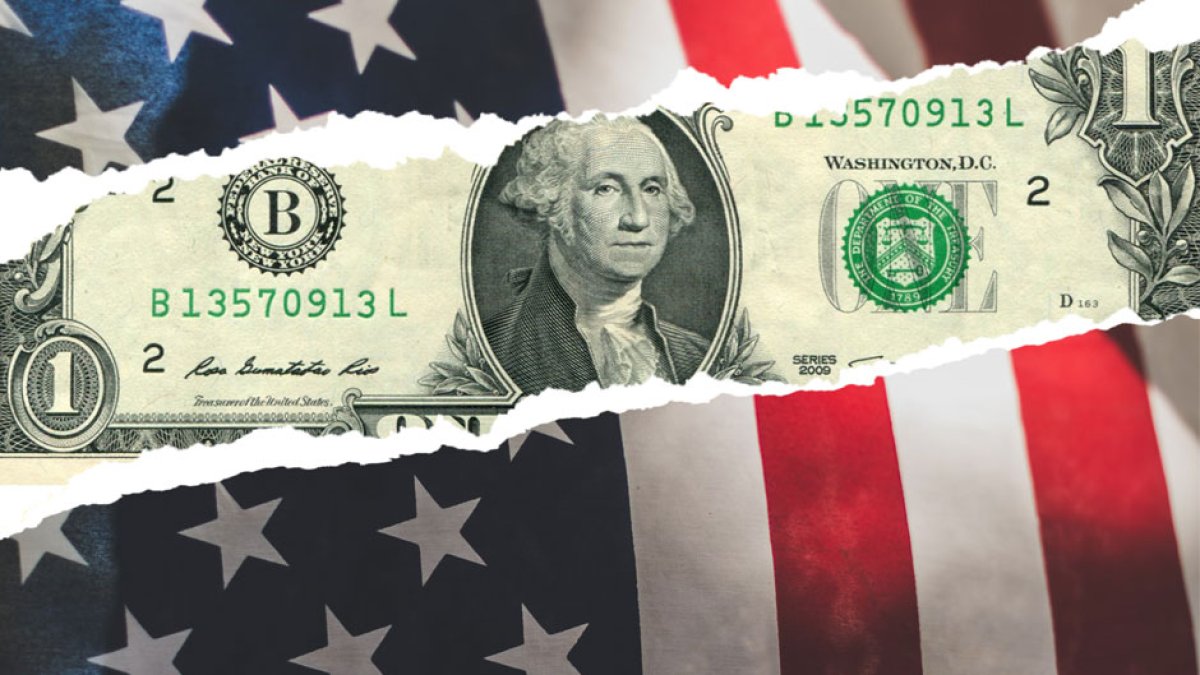COUNTDOWN TO DEFAULT
Failure of negotiations between McCarthy and Biden would leave the Treasury unable to pay civil servants, pensioners and investors and would trigger a severe global recession.

(publicdomainpictures)
With just over a week to go before the deadline set by Treasury Secretary Janet Yellen, the shadow of default seems less and less utopian. Republicans and Democrats continue to reinforce their positions and demonize those of their opponents with harsh accusations, this has led companies and governments around the world to try and prepare for a possible tsunami of as yet incalculable but devastating consequences for the global economy. So, what will happen if Kevin McCarthy and Joe Biden do not reach an agreement by June 1?
First, what is the debt limit and the dreaded default? To prevent agency waste, the Debt Ceiling law was created in 1917 to limit the total amount of money the government could borrow to pay its bills. That is, civil servants' salaries, pensions, social services checks etc.. as well as interest on the debt. If the established ceiling is reached, the Treasury will not be able to resort to the markets to obtain the money necessary for the day-to-day running of the Executive, which would not be able to meet its financial commitments, this is known as Default or non-compliance. Furthermore, it would not be able to refinance the old debt as it comes due in order to meet its payments and obtain liquidity.
Non-compliance, a "devastating" scenario
What would happen if it were to eventually occur? Experts acknowledge that the full implications of this cannot be calculated a priori, because there are many ramifications to consider. What they do say is that "it would be devastating." And not only for the national economy, but it would cause a contagion effect that would shake the world economy. What is certain is that the Administration would not be able to meet its obligations to its employees, pensioners, nor to those who invested in Treasury bills and bonds in search of profitability and stability.
This would mean an immediate downgrade of the US rating by the agencies. This leads to a cost overrun when placing the debt and a loss of confidence in investors, who would choose other safer options first. This is a consequence that will occur as the deadline approaches, even before the Administration's non-compliance. In 2011, under Barack Obama, the tussle between the Republicans and the president went to the last day and cost Americans a credit rating penalty and a $1 billion cost overrun.
Fall in value of treasury bills and bonds
According to John W. Diamond, director of the Center for Public Finance at Rice University's Baker Institute, banks and investors are likely to reduce their exposure to U.S. Treasury securities as the date approaches. The loss of value of bonds and bills would be a serious drain on the coffers of financial institutions, which are already heavily penalized. In fact, the onset of the current financial crisis is due precisely to the fall in the value of bonds as a result of the Federal Reserve's interest rate hikes. In addition, the increase in the cost of credit for the Administration would be passed on to loans to companies and individuals, causing a rise in mortgages and the purchase of cars or industrial machinery.
According to Moody's estimates, if an agreement is not reached quickly, stock prices would fall by almost one-fifth and the economy would contract by more than 4%, resulting in the loss of more than seven million jobs. This scenario would trigger a severe national recession that would quickly drag down the rest of the world. The primacy of the US and the dollar in the global economy would be further compromised.
Will Biden invoke the 14th Amendment?
Since 1960, Congress has raised the debt ceiling 78 times, according to the Treasury Department. President Biden referred last Sunday to the possibility of invoking the 14th Amendment in the event that negotiations do not go forward.

























